We are here on earth at this time to experience contrast and to learn what it is to live life as a human being. However, in reality, we are so much more than just this body and mind that most of us relate to as ‘I’ or ‘Me.’ But this only becomes apparent when we begin to seek out our true nature. We can begin this process of understanding ourselves by becoming an observer to our own life, and if we are studious we will come to the conclusion that we are something much greater than what we currently see and feel.
Below I have listed some ways in which seekers of self-knowledge can learn more about their true spiritual nature. See if you can relate to any, a few, or all of them. I would love to hear what other ways you use to connect to your spiritual self.
Breath
Watching a baby shows that they naturally breathe deeply, with their stomach inflating as they inhale and deflating when they exhale. They have not yet taken on the stresses, fears, and worries that accumulate as we age throughout life. This results in our breath becoming shallower, and in extreme cases restricted to just the upper chest cavity and throat. Incomplete breathing deprives the body of sufficient life-giving Prana (the universal energy which flows in currents in and around the body) and which is absolutely necessary for a healthy life experience.
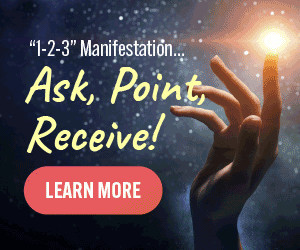 When facing fears, doubts, uncertainty, or anything that causes the body stress, the breath becomes restricted and this limits the feelings we can access. Fatigue, anxiety, depression, and tension can take over. However, they can be alleviated by standing back for a moment and breathing deeply in a relaxed manner, which helps to reattach the emotions to the body and minds. This allows for appropriate responses to the immediate situation rather than habitual reactions of locking the emotions up into the cellular structures of the body.
When facing fears, doubts, uncertainty, or anything that causes the body stress, the breath becomes restricted and this limits the feelings we can access. Fatigue, anxiety, depression, and tension can take over. However, they can be alleviated by standing back for a moment and breathing deeply in a relaxed manner, which helps to reattach the emotions to the body and minds. This allows for appropriate responses to the immediate situation rather than habitual reactions of locking the emotions up into the cellular structures of the body.
The absence of Prana, over time, causes the flow of energy in our bodies to become restricted, blocked, or stagnant, which leads to physical, emotional, and mental dis-ease. As previously touched on, full use of the breath is very therapeutic for our mind, body, and emotional well-being. It is our breath that allows us to journey deeper into our body and mind to re-establish the harmonious flow of energy. This stable flow of energy allows us to access strength and power that we may not even realize we possess, to create balance, harmony, and health in our lives.
Meditation
Meditation is a practice that has been used by many cultures throughout time. It is a way of strengthening the mind of the practitioner and increasing their connection to spirit, the natural world, and the worlds beyond the perception of our normal five senses. Meditation, through studies, has also been shown to relieve pain, enhance creativity, relieve stress, and boost the body’s immune systems. This occurs as developing control of the breath quietens the mind and normalizes physiological functions within the body.
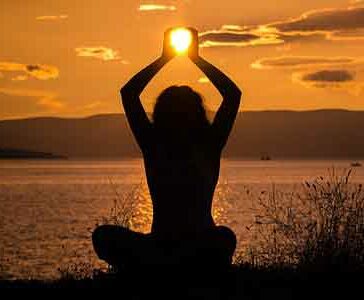
By relaxing the mind and focusing the intent on stillness, the brain can relax and rejuvenate for the duration of the meditation, giving it a much-needed rest from the otherwise constant activity that it is involved in. The actual physical gray matter of the brain has been shown to soften and become more flexible in those who practice regularly. As the mind lets go of its worries, fears, and commitments it will also allow the body to let go and be at peace.
In the beginning, the mind is developed and strengthened through various techniques to increase ‘awareness’ and to keep the mind focused in the direction that the practitioner wants to point it for as long as possible. After some time, it is possible to become aware of the relentless ‘mind chatter’ or random thoughts (that are constantly being dumped from the unconscious mind into the conscious mind), that take over and distract us from what it is we wish to concentrate on. By only observing, and not engaging in these thoughts, (from the perspective of a third person who is sitting behind and watching the unconscious mental activity), the practitioner can begin to understand more about their mind and how it has been working either for or against them in the past.
Awareness of thoughts, that we did not purposely engage our mind in is critical to understanding our own undesirable mental programs. They may be deeply ingrained beliefs that we hold and are unaware of, that continue to sabotage us from achieving the lives we desire. Continued dedication to regular meditation practice dissolves the barriers between the unconscious and conscious mind and allows us to become more conscious more of the time.
In this way, meditation can become a part of all experiences we have every day by engaging consciously in the present moment. This very act alone reduces the importance placed on problems from our past or perceived future. The benefits of a dedicated meditation practice include more stable and optimal emotional reactions to life’s events, which allows us to live more fearlessly.
Many styles and philosophies on meditation have been taught throughout the ages in many schools. Each school has its own unique instructions and insights about how to practice. However, the central theme is always the same- to place awareness within the body, and observe the thoughts, and remain ‘conscious’ in the present moment. This can be achieved in whatever way works best for each of us. Some people prefer to sit cross-legged, while others lie down or walk around.
Initially, as mentioned, awareness of the breath is very important to aid in anchoring the mind to the present moment. After some practice, this will become automatic and the practitioner may wish to employ other techniques, including mantras (repeating sacred words), contemplative thoughts, or a variety of different breathing practices. Some people find benefits in using binaural beats and isotones music which aid meditation by altering their brain wave patterns, to induce deeper relaxation and a heightened sense of self-awareness.
Mindfulness
Mindfulness is a practice that is growing in popularity in the west and can be considered as ‘the results gained from a successful meditation practice integrated into every aspect of the practitioner’s waking life.’ Therefore, it is the intentional and non-judgmental focus of attention, or awareness on one’s own feelings, thoughts, emotions, experiences, and the immediate surrounding environment in each and every moment- without judgment regarding ‘right or wrong,’ and ‘good or bad.’ The most important characteristic of this is that the mind is focused on the present moment and thus avoids the wasted time of rehashing the past or searching into possible futures.
Mindfulness trains the mind to be able to concentrate for longer and longer periods of time, thus avoiding the time lost through distractions when trying to complete any task. Improved concentration and focused attention to detail during any endeavor ensure a better-quality completion of any task. A greater sense of satisfaction with outcomes will be achieved compared to if the mind was wandering around freely giving attention to any unwelcomed and distracting thoughts.
 The mind can be considered a muscle in the respect that a concentrated effort to maximize each of their potentials is required for both to excel in either concentration or sports.
The mind can be considered a muscle in the respect that a concentrated effort to maximize each of their potentials is required for both to excel in either concentration or sports.
Mindfulness practices are increasingly being researched and used in therapies to help patients cope with negative experiences more effectively. Decreases in anxiety and psychological distress are experienced when patients take up meditative practices which take their mind away from that which is causing them distress and puts them into the present moment where they can experience what is currently going on within them and around them.
A huge advantage to this type of therapy is that anyone can learn it and it reduces or eliminates the need for traditional medication-based treatments which often have undesirable side effects. Mindfulness has long been used by traditions such as Buddhism and is regarded as a powerful tool to maintain physical, mental, emotional, and spiritual health. It is therefore viewed as an essential component of preserving the vitality and overall well-being of a person and prevent the onset of dis-ease.
Mindfulness practices are also progressively being viewed as acceptable cognitive therapies and have been shown to positively affect the areas of the brain that control emotional processing. The continued practice of focusing attention on the present moment helps people 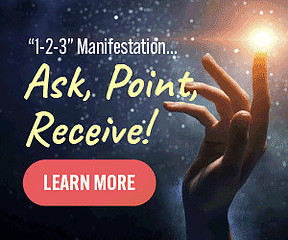 with anxiety and bipolar disorders, as well as other social disorders. In this modern society, which is increasingly aware and afraid of the many reported side effect of pharmaceutical prescription drugs, mindfulness can help, in many cases, to provide a drug-free alternative that will bring lasting positive results to the overall wellbeing of the practitioners.
with anxiety and bipolar disorders, as well as other social disorders. In this modern society, which is increasingly aware and afraid of the many reported side effect of pharmaceutical prescription drugs, mindfulness can help, in many cases, to provide a drug-free alternative that will bring lasting positive results to the overall wellbeing of the practitioners.
With the emotional awareness that being present in the moment brings, people have the ability to better manage their emotions which enhances their relationship with themselves as well as with others. When integrated with meditation, thoughts, and feelings can be changed to preventing potentially unpleasant actions and therefore change outcomes into beneficial experiences. Additional benefits achieved by learning to balance stress and reduce unpleasant emotions are the heightened sense of being able to experience positive emotions like love, joy, and laughter.
Intuition
For most people, our mind is the primary source of information. However, our minds can only operate with information from the physical world and are therefore only capable of analyzing and processing a very limited amount of information. And, the mind cannot understand and analyze what it does not know. Science has ‘limited’ life in our world to a set of demonstrable and definable facts, and what cannot be understood within this context is dismissed as unverifiable and therefore considered not real.
However, it seems that almost all people have either had or know someone who has had intuitive insights or ‘gut feelings.’ These intuitions give access to ideas, wisdom, or ‘knowing’ that do not arrive by way of the normal five sensors. Science dismisses the existence of these intuitive insights because it cannot find evidence for something that exists outside of the limited framework that science operates in.
This does not mean that intuition is not real, it just means that science has yet to evolve enough to be able to understand something that it currently does not acknowledge exists. The scientific knowledge of today is vastly greater than that of 100 years ago and will, with time, continue to evolve to encompass much more than the scientists of today currently can verify.
To see beyond what we currently understand, we must learn to feel with our hearts to begin to comprehend the ‘energetic realms’ that operate outside of our limited five senses. As individuals, if we can accept that these realms exist and that greater knowledge is available to us, then by acting upon a feeling when we receive it, we can begin to strengthen our connection to our metaphysical selves.
Also, by placing faith in our higher-SELF and seeking answers from it, we begin to receive clearer indications as to when we are truly doing actions that benefit our higher purpose. We can begin this process by asking when unsure of which action to take, “Which one of these options best aligns with my highest good or higher purpose?” Wait for an answer, and when received, act upon it! Intuition is like a muscle in this respect- the more often it is used, it stronger it will become.
Silence
Silence is an integral part of the above methods of attaining greater SELF-awareness. Sadly, however, it is becoming an increasingly rare aspect of the average person’s daily experiences. We are almost constantly polluted with noise and distractions which severely obstruct our ability to focus on what we are thinking and feeling.
By being always tuned into the latest news, weather, gossip, social media, video games, TV show, texting, organizing, scheduling, etc. there is the avoidance of the ever-important ‘SELF.’ It is self-knowledge that connects us to the environment we are in and allows us to have a deeper and more meaningful experience with life through our heart, instead of the busy distracted mind.
“The quieter you become the more you are able to hear.” Rumi
For many, these distractions are a way of avoiding dealing with their sources of anxiety, frustrations, and fears, all of which lie under the surface of their daily existence. As truth is avoided, ignorance remains.
Boredom and loneliness are what the younger generations associate with those who are not connected with the latest technological gadget that is designed to engage their limited senses and keep them from seeing above the screen to a life greater than the ‘latest entertainment’ on offer. However, a deep and meaningful life experience cannot be found outside of SELF.
Being discerning and choosing to disconnect from the endless distractions and to sit in quiet contemplation each day will again reconnect us to our heart. This is the place where we must go to learn the truth about ourselves and about the lessons we are here to learn. It is here that we will discover the gifts we have that can make a positive and lasting difference in the evolution of all life on Earth. Solitude is an amazing gift for the sincere seeker as it grounds us deep within our own being- where we will find the answers we are seeking.
Yoga, Tai Chi, Aikido, etc.
No matter what our age, our physical condition, or whatever health issues we may be inflicted with, there is always something we can do to improve our own quality of life. The correct daily exercises can improve concentration, balance, and memory, prolong youthful suppleness, and generate energy within us for all endeavors. Regular practice reduces stress, tension, and depression and allows for improved cognitive functions of the brain and less dis-ease within the body, all the while promoting strength, coordination, flexibility, and improvements in natural immunity.
 These practices are holistic systems to influence all the life spheres of a person – body, mind, and soul. All place great importance on focused breathing, focused movements, and intention, (mindfulness), for proper practice. Any form of exercise or action we take can be used to strengthen our connection to the spiritual dimension within us and reconnect us to our environment.
These practices are holistic systems to influence all the life spheres of a person – body, mind, and soul. All place great importance on focused breathing, focused movements, and intention, (mindfulness), for proper practice. Any form of exercise or action we take can be used to strengthen our connection to the spiritual dimension within us and reconnect us to our environment.
However, exercise in the West is usually undertaken without the necessary focused awareness, and therefore, students do not develop all the possible benefits that are gained when adding intention and mindfulness. By being aware of our breath, thoughts, movement, and intentions, while doing any task, we can naturally strengthen our connection to our deep inner SELF.
Studies on just the physical aspects of yoga have shown improved mental and physical health in practitioners suffering from depression, anxiety, obsessive-compulsive disorder, post-traumatic stress disorder, schizophrenia, chronic pain, asthma, diabetes, as well as other conditions. Regular practice also benefits healthy individuals by improving psychological well-being, satisfaction with life, self-esteem, and reducing stress and performance anxiety.
It is thought that these benefits derive from direct stimulation of the vagus nerve, which connects the brain, (and therefore the mind,) to the vital body systems including the heart, lungs, digestive tract, kidneys, and reproductive organs. The vagus nerve is responsible for the body’s unconscious functions, (autonomic,) including breathing, circulation, and digestion, and is also directly linked to social competence.
When yoga postures are combined with controlled breathing and meditation, the range of benefits is widened to include emotional regulation, social competence, and pro-social behaviors. Aggression, hostility, depression, and anxiety are dampened.
“If we practice the science of yoga which is useful to the entire human community and which yields happiness both here and hereafter if we practice it without fail, we will then attain physical, mental and spiritual happiness and our minds will flood towards the SELF.” Sri K. Pattabhi Jois

Most Western forms of exercise are based on competition and are about keeping the body in a healthy condition. This contrasts with many practices from the East that focus on ‘personal doing’ with the aim to become more fully aware of the ‘self,’ (body, mind, and soul.) This awareness helps to create inner and outer harmony, increases energy, and improves health.
These practices realize that flexibility and strength relate to the mind and emotions as well as the body, therefore allowing the practitioner to become more aware of and more open to exploring the limits of their body, mind, and emotions. It is through awareness of the ‘subtle shifts’ of energy that occur when practicing meditation, breathing exercises, or physical exercises, like yoga and tai chi, that new perceptions about daily challenges can be realized.
Some of these practices have a recorded history of thousands of years and are comprehensive systems to unify the mental, physical, emotional, and spiritual aspects of self with the larger world and beyond. With regular practice, we gain physical flexibility, improved balance, strength, endurance, and perseverance. More importantly, when our mind relaxes, our approach to daily life will flow with more ease as our internal energy/life force/chi is cultivated to become more balanced and grounded.
 These holistic practices, by incorporating all aspects of self, are also a path towards spiritual wellbeing and enlightenment. Yoga means ‘union,’ and an intention to cultivate a conscious connection while practicing any discipline will lead to greater SELF-awareness. And when we can sense our own spirit, we can then begin to recognize a connection to the same spirit in all life.
These holistic practices, by incorporating all aspects of self, are also a path towards spiritual wellbeing and enlightenment. Yoga means ‘union,’ and an intention to cultivate a conscious connection while practicing any discipline will lead to greater SELF-awareness. And when we can sense our own spirit, we can then begin to recognize a connection to the same spirit in all life.
An expanded awareness of self through learning new ways of moving and responding to our body and mind will allow other areas of our life to shift and change as well. This permits us to grow beyond our previous limits by cultivating deep inner strength. This power, when taken into our daily lives, allows us to face fears from a position of strength to facilitate mental and physical healing. While being fully in the ‘body,’ and at the same time detached from the mundane happenings of life, we can achieve contentment through non-attachment to expectations and outcomes.
Connection to nature
Connecting with our natural world with a pet, walking in a forest, on the beach, by a waterfall, gardening, viewing a sunset, etc. are all ways of relaxing the mind and winding down. Unfortunately, modern societies have disconnected many people from the beneficial relationship we have had with the Earth in the past. Many of us now live in houses or apartments, work in offices, and walk in shoes on a variety of artificial surfaces all day, all of which separate us from the natural healing properties of the Earth.
Direct contact with the Earth actually grounds our bodies as we absorb much-needed electrons directly from the soil, grass, rocks, sand, etc. Research has shown that the Earth’s electrons are the ultimate antioxidants for us, as they provide beneficial electrophysiological changes in our bodies, which help protect us from disruptive electromagnetic fields, like our ever-present cell phones.
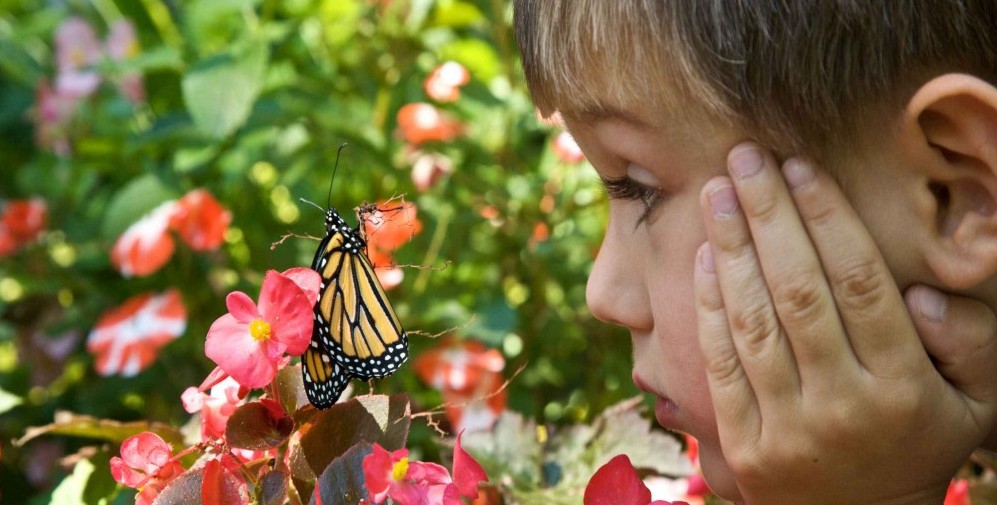
The compassion we extend beyond our family and friends is a reflection of how evolved we are. When we can show empathy towards others, the animal, and natural worlds, we also directly affect our own lives by increasing our own peace of mind and happiness. We are multi-dimensional beings and by recognizing our connection to ALL of nature, we will naturally behave with more consideration and respect. This in turn benefits our overall wellness and spiritual connection to THE SOURCE of all life.
Psychedelics and Plant Medicines
These substances have a distinct psychoactive element as they can drastically alter ordinary consciousness. People who have used ecstasy, ketamine, LSD, and shamanic plant medicines, (like ayahuasca and iboga,) commonly report dramatic breakthroughs in their mental, emotional, and spiritual health. These substances work by affecting people on multi-dimensional levels, many of which are not measurable by empirical scientific methods, and are therefore often dismissed by researchers who are unable to directly quantify results.
Nevertheless, the consciousness-expanding experiences had when partaking in these substances can be highly effective in allowing a person to have a mind-expanding experience. Ayahuasca, for example, induces a deeply meaningful and personal spiritual experience that offers insight into one’s behavior and past experiences. This helps a person to develop a healthier relationship with themselves.
The African plant medicine, iboga, sends the patient on an intensely personal journey of introspection which connects them to the higher dimensions of SELF. According to many participants, self-defeating and self-destructive patterns of thought can be rewritten with a single shamanic ceremony. Some patients report that they were even able to communicate directly with their own souls.
______________________________
This list is by no means complete, as many traditions survive today that help strengthen our bond to higher aspects of SELF so we can recognize our connection to the Source of all Creation. It is up to each of us to find which one or which combination of methods works best for us. And, it all begins with THE STRONG DESIRE to come to understand ourselves more intimately.
Please tell me about your experiences as they will add to the knowledge base for all who read this post.
Shared with much love and respect,
Andrew

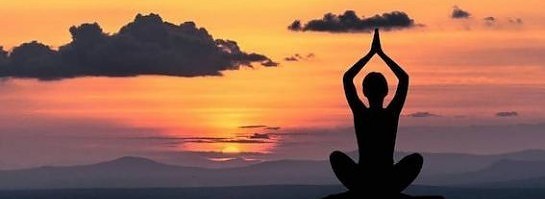




Thank you for this excellent and thought-provoking post! Meditation has proven a valuable tool in changing my thoughts. I did have some difficulties at first, but being “aware” has had a tremendous impact on my life.
It is a constant journey of self-awareness and self-improvement. Over time we can become aware of events that are occurring (to us or around us) much more easily and choose how we react. It reminds me of a saying that went something like this. Don’t let life happen to you. Make sure you happen to life!
Hi Mike. Many thanks for your comments. I like “don’t let life happen to you. Make sure you happen to life.” So true, and it’s just a matter of being conscious and in the moment, then we create our life as we wish it to be. Kind regards,
Andrew
How’s it going, Andrew. I believe spirituality is a great topic to discuss in this day and age with so many people lost and looking for guidance. Inner peace and self-awareness are very important. Amazing content as well and I understand it very well. Amazing image placement. I’m going to look more into your website. Good job and keep it up.
Hi Xavius. I have to agree with you that self-awareness and inner peace are very important. Unfortunately, when we discuss spiritually with others, we can lose both, especially if the other parties are telling us how we should be living our life.
We are all different and therefore need different solutions to find inner peace. Sharing ideas can be very beneficial as long as each party respects the others and allows them to choose their own path. I am happy that you enjoyed reading some of my words and hope to interact with you again soon.
with respect,
Andrew
HI
I am really glad that i came over to this informative, interesting and helpful article.
I have tried Tai Chi and think that it is a really good way to relax and feel refreshed
along with deep breathing which I find really good for getting to sleep and relieving stress.
Deep breathing I find is a really helpful whilst mediating.
Psychedelics and Plant Medicines I did not really fully understand until I read it here so thanks for that.
Thank you
Jennifer
Hi Jennifer. Thanks for your encouraging feedback. I appreciate that you took the time to read my post. I believe all self-awareness must include, and even begin with deep breathing. Sadly it is a skill very few of us ever learn to incorporate into our daily lives, and yet it is a skill that has the ability to deeply improve our life experience. Kind regards,
Andrew
Hi Andrew,
Thank you for the very informative article and for providing a variety of techniques to help us stay grounded throughout difficult times. I myself have practised meditation and mindfulness which I found very helpful during times of increased stress and your article excellently explains the science behind these techniques. Thank you.
Hi Antonio. I’m glad that you got some positive and useful information from my post. Kind regards,
Andrew
Hi, I like yoga especially in the morning
really you feel that you connect to yourself!
Thank you for sharing these amazing techniques
Hi Tahani. Many thanks for your interest. Wishing you all the best.
Andrew
Wow, I’ve done yoga and really enjoyed it for the physical aspects, flexibility, recover and injury prevention but I never understood the connection to our spirit. One time at the end of my session I was finishing in the savasana, really getting into it and when I was all finished I felt refreshed and energized. It was truly an amazing feeling. After reading your post, I realize I’m more intuned with my spiritual self then I thought. I’ve learned to follow my gut feelings years ago, and once I had children my intuition got stronger, mother intuition I suppose. My husband is always asking me what is wrong because I periodically take deep breaths throughout the day, more often when I’m feel stressed or frustrated but also for not reason at all other that to feel refreshed. I’m going to start to get more into the spiritual side of yoga. Thank you or such a great post!
Mallory
Hi Mallory. Thanks for sharing. I’m happy I was able to help you understand what you were feeling. It’s good to hear that you naturally return to deep breathing as a way to re-energize yourself and to release stress. There are many good yoga teachers out there who can help you with the spiritual side of yoga, but there are many more who don’t really ‘walk the talk,’ so to speak. Again, take a deep breath and allow your intuition to guide you to the right one for you at this time in your life. Love and light,
Andrew
I really like this post for the way you broke all the individual categories down. The one that really resonated with me was intuition. I am such a strong believer in this and it’s something that I started to notice as a I got older. Some people refer to it as “gut instinct” but in my mind they are one in the same. It is a certain level of clarity, prediction and insight that can’t be explained by anything scientific. It is probably one of my favorite things!
That’s awesome Dave. Thanks for the reply. I agree with you that gut instinct and intuition are one and the same. It doesn’t matter what we call it. The secret to making it grow is to believe in it and act according to the instincts that we receive. Wishing you all the best.
Andrew
I found this article to be very informative and i am going to looking into some of these things like the breathing, meditation and even tai chi. Thanks for the info.
Hi Derval. You are welcome, and I am happy my article has inspired you to learn more.
Kind regards,
Andrew
Hi, I personally like the meditation techniques.
I love to take a shower early in the morning and then do some meditation.
I also love to do a long swim in a lake in the morning, it is so quiet and peaceful with the birds singing and the green nature to look at.
After some 15 minutes, my mind goes like in meditation mode and I often forget that I’m getting tired from swimming. I’m very privileged to live in a seduced place where I can swim in my own quiet little lake.
Hi Stefan. It sounds like an amazing place where you live. Definitely conducive to easily achieving a relaxed and natural meditative state. I wish you all the best.
Kind regards,
Andrew
Hello Andrew,
I really enjoyed your article, as a ‘searcher’ myself I have long been interested in meditation, yoga, mindfulness etc. Really great to see you getting these concepts out there as so many people are looking for ways to improve their lives who really need this info, including myself, love your work.
Thanks for the encouragement, Cambell. I’m very inspired by the huge and ever-growing number of people who are actually into meditation and mindfulness.
Kind regards,
Andrew